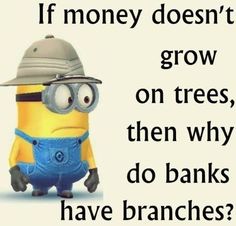
1/30: Many #Startup CEOs struggle to redefine their own role as their company scales. I’ve been asked by startup CEOs many times: “What should my job be?” What follows is a framework I’ve used to guide various CEOs through the evolution from a “Small Team CEO” to a “Proper CEO”: 

2/30: But, before I share the framework I almost universally have to re-set their expectations because most first time CEOs think that their primary function is to “make all critical decisions”. Breaking them out of a “control everything” mentality is uncomfortable but essential.
3/30: What’s disappointing is that many CEOs can’t wrap their heads around the thought that they won’t be directly involved in everything happening at their company and in the middle of all critical decisions. Only when they’re ready to deal with this they can evolve.
4/30: The framework I’ve used in the past has the CEO playing 5 key roles: Visionary, Team Manager, Sounding Board, Chief Procurement Officer, and Brand Champion. Unpacked:
5/30: The CEO’s role as the Corporate Visionary is to make sure that when employees are off doing their jobs they know what they’re building towards. The target needs to be crystal clear and broken down into measurable and deliverable components.
6/30: Talented CEOs can paint a picture of the future they want to create (strategic long-term vision) as well as define measurable components and intermediate steps that map out the most likely path that will deliver the vision.
7/30: A great company has to be built on top of a good company, and the intermediate steps are used to define the journey from good to great. They can be framed as “corporate imperatives” that become the building blocks for the vision.
8/30: A strong vision paired with well-defined corporate imperatives allows employees to always be asking the question “Am I working on tasks that advance the cause?” When the answer is “no” they need to flag the issue and resolve it quickly.
9/30: The CEO’s role as the Team Manager is to be the architect behind the organizational structure and Executive accountabilities as well as the talent scout, judge, jury and executioner for the Executive team.
10/30: A well designed organizational structure assigns accountabilities to specific individuals on the Executive team. A general truism is that a company only solves problems that it organizes around so getting organizational structure right is important.
11/30: One and only one person should be assigned a set of critical tasks. The person with ownership needs to make the decisions that impact their area and is accountable to the CEO for delivering results. This person is an “Accountable Executive”.
12/30: What needs to internalized by a CEO is that they can only hold someone accountable for results that are generated directly from decisions made by that person. This is where most CEOs fail to evolve and I watch the struggle play out constantly in the startup ecosystem.
13/30: If a CEO loses faith in the decision making abilities of one of their Executives then the CEO has to replace them. If the CEO can’t hold an Executive accountable for a major corporate initiative then they’ve hired the wrong person or are too controlling.
14/30: The CEO can be an Accountable Executive when their company is small but the CEO can’t be the Accountable Executive for all important initiatives. The CEO needs to eventually step out of the Accountable Executive role completely.
15/30: Another important role of the CEO as the Team Manager is to define the corporate culture. And by corporate culture I don’t mean the buzzword that leads to discussions about ping pong tables and free lunches. Corporate culture is how work gets done in the organization.
16/30: Culture is about behaviors and values that surround decision making. Most people mistake perks for culture. Good CEOs don’t make this mistake.
17/30: The CEO’s role as a Sounding Board is to make sure that every Executive has someone to bounce ideas off of as well as someone to discuss the pros and cons of various critical decisions with. The CEO has complete context and therefore is a well qualified sounding board.
18/30: As a Sounding Board, the CEO can listen to the choices being contemplated and the logic behind proposed decisions and can poke holes and/or provide additional perspective. But the CEO needs to remain an advisor and mentor when playing this role.
19/30: The CEO always has the nuclear option to “grant themselves permission to make a decision” when the stakes are high. But if the trigger is pulled, the CEO effectively reassigns accountability for a critical task to themselves.
20/30: Granting yourself permission to make a decision is a critical tool for a CEO to master. It should be used very infrequently and it needs to be openly declared when doing it. But it’s important for a CEO to know they have this option at their disposal.
21/30: The CEO’s role as the Chief Procurement Officer is to procure and assign necessary resources to the Accountable Executives. The CEO has to constantly ask “Do you have what you need?” and then source the raw materials that fuel the company.
22/30: Procurement is about making sure everyone has what they need to succeed. If an Accountable Executive doesn’t have what they need, then their scope needs to be reduced or more resources procured.
23/30: Resources include budget (i.e. – equity and debt), permissions (i.e. – regulatory and investor approvals), talent (i.e. - direct and indirect staff) and prioritization (i.e. – organizational rank ordering of initiatives).
24/30: The CEO’s role as the Brand Champion is to shape the corporate Brand and ensure that it’s more than just words in a PowerPoint deck.”
25/30: A simple definition worth remembering: “A Brand is a promise that when kept creates preference.” A Brand isn’t about logos or tag lines. It’s about defining and delivering a set of promises to your customers. This is something that the CEO can and should declare.
26/30: Making sure that every policy and customer interaction is consistent with the Brand promises is the job of every employee but the CEO has to first crystalize how the Brand promises will live in the real world.
27/30: If the CEO obsesses about tracking and resolving “Brand Promise Violations” then everyone will obsess similarly. If the CEO ignores the Brand it will evolve on its own with no guidance. Rolling the dice with a company’s Brand is a risky strategy.
28/30: When all is said and done, the transition from “Small Team CEO” to “Proper CEO” doesn’t happen overnight. But with the right forethought and planning the transition can be made with the “CEO Proper” having a solid grasp of what his/her role is on the team.
29/30: Remember that true learning/personal growth is almost universally accompanied by intense feelings of discomfort. Delegating decisions and holding one’s team accountable for results allows a CEO to elevate his/her role which is essential in the building of any great company
30/30: And in the immortal words of George S. Patton: “Don’t tell people how to do things. Tell them what to do and have them surprise you with their ingenuity.”
• • •
Missing some Tweet in this thread? You can try to
force a refresh








